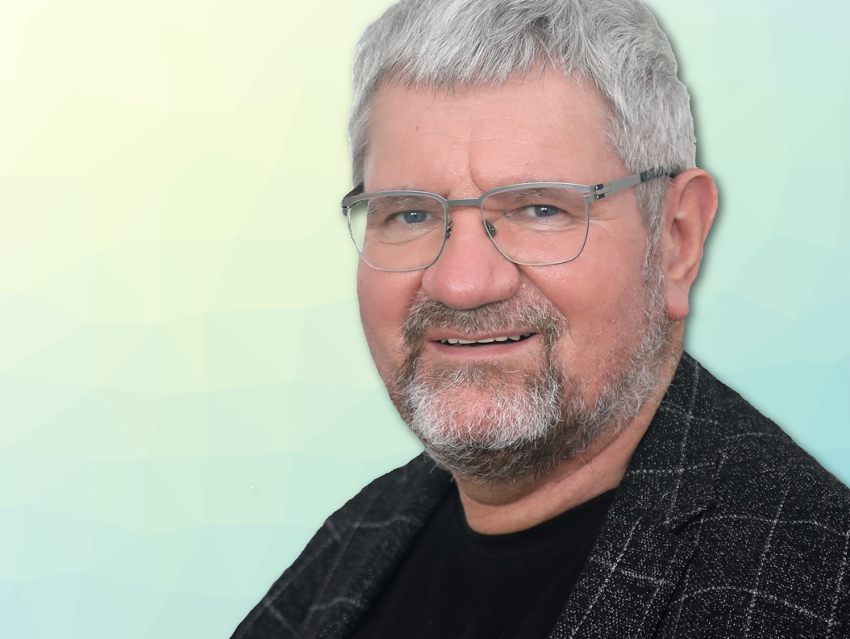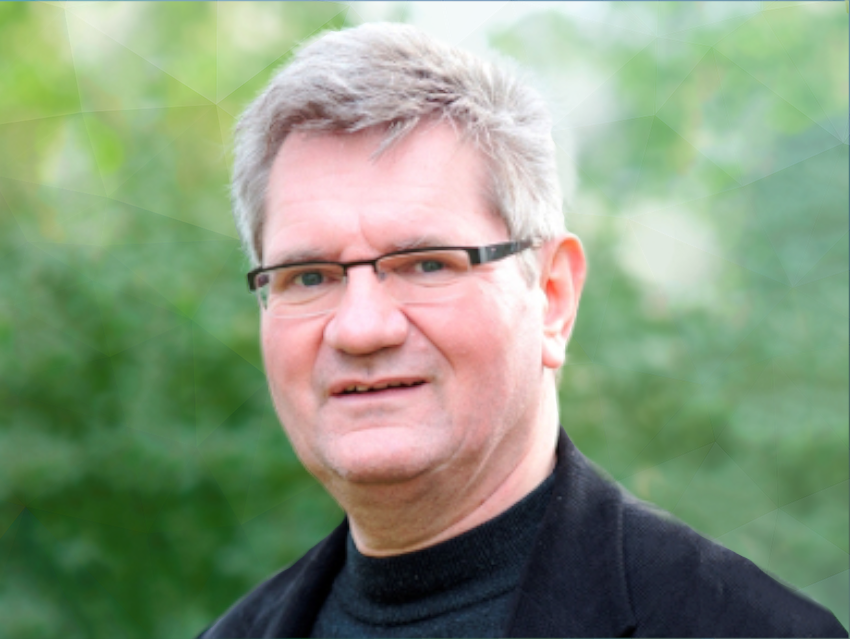Robert Schlögl, formerly Fritz Haber Institute of the Max Planck Society, Berlin, Germany, and Max Planck Institute for Chemical Energy Conversion, Mülheim an der Ruhr, Germany, celebrates his 70th birthday on February 23, 2024. His research primarily focuses on developing nanochemically optimized materials for energy storage and investigating heterogeneous catalysts, aiming to merge scientific knowledge with practical applications, such as large-scale chemical energy conversion.
Robert Schlögl studied chemistry at the Ludwig Maximilian University of Munich (LUM), Germany, where he received his Ph.D. in 1982. He conducted postdoctoral research at the Universities of Cambridge, UK, and Basel, Switzerland. In 1989, Schlögl completed his habilitation at the Fritz Haber Institute. The same year, he became a Full Professor of Inorganic Chemistry at the University of Frankfurt am Main, Germany.
From 1994 to 2022, he has served as Director at the Fritz-Haber-Institute and from 2011 to 2022, as Founding Director and then Managing Director at the Max Planck Institute for Chemical Energy Conversion. Additionally, he received honorary professorships at the Technical University of Berlin in 1994, at the Humboldt University of Berlin in 1998, at the University Duisburg-Essen, Germany, in 2012, and at the Ruhr-University Bochum (RUB), Germany, in 2015. Schlögl retired from the Max Planck Institutes in March 2022.
Robert Schlögl has been President of the Alexander von Humboldt Foundation since 2023. He is Vice President of the German Academy of Sciences Leopoldina and a member of several other academies. He was and is involved in three DFG-funded Excellence Clusters and Collaborative Research Centres, as well as various EU collaborative projects.
Among many other honors, Robert Schögl was awarded the DECHEMA-Plaque in 2010, the Alwin Mittasch Prize in 2015, and the Innovation Award 2015 from the Ministry for Innovation, Science, Research and Technology (MIWF) of the State of North Rhine-Westphalia, Düsseldorf, Germany. He is a Honorary Editorial Board member of ChemCatChem and a Fellow of the Royal Society of Chemistry (RSC).
Selected Publications
- Praveen Narangoda, Ioannis Spanos, Justus Masa, Robert Schlögl, Aleksandar R. Zeradjanin, Electrocatalysis Beyond 2020: How to Tune the Preexponential Frequency Factor, ChemElectroChem 2022. https://doi.org/10.1002/celc.202200021
- Hong Nhan Nong, Lorenz J. Falling, Arno Bergmann, Malte Klingenhof, Hoang Phi Tran, Camillo Spöri, Rik Mom, Janis Timoshenko, Guido Zichittella, Axel Knop-Gericke, Simone Piccinin, Javier Pérez-Ramírez, Beatriz Roldan Cuenya, Robert Schlögl, Peter Strasser, Detre Teschner, Travis E. Jones, Key role of chemistry versus bias in electrocatalytic oxygen evolution, Nature 2020. https://doi.org/10.1038/s41586-020-2908-2
- Maximilian J. Werny, Yuanqing Wang, Frank Girgsdies, Robert Schlögl, Annette Trunschke, Fluctuating Storage of the Active Phase in a Mn‐Na2WO4/SiO2 Catalyst for the Oxidative Coupling of Methane, Angewandte Chemie 2020. https://doi.org/10.1002/ange.202004778
- Cédric Barroo, Zhu-Jun Wang, Robert Schlögl, Marc-Georg Willinger, Imaging the dynamics of catalysed surface reactions by in situ scanning electron microscopy, Nature Catalysis 2019, 3, 30–39. https://doi.org/10.1038/s41929-019-0395-3
- Robert Schlögl, Put the Sun in the Tank: Future Developments in Sustainable Energy Systems, Angew. Chem. Int. Ed. 2019, 58, 343–348. https://doi.org/10.1002/anie.201808799
- Guodong Wen, Qingqing Gu, Yuefeng Liu, Robert Schlögl, Congxin Wang, Zhijian Tian, Dang Sheng Su, Biomass-Derived Graphene-like Carbon: Efficient Metal-Free Carbocatalysts for Epoxidation, Angew. Chem. Int. Ed. 2018, 57, 16898–16902. https://doi.org/10.1002/anie.201809970
- Juan-Jesús Velasco-Vélez, Travis Jones, Dunfeng Gao, Emilia Carbonio, Rosa Arrigo, Cheng-Jhih Hsu, Yu-Cheng Huang, Chung-Li Dong, Jin-Ming Chen, Jyh-Fu Lee, Peter Strasser, Beatriz Roldan Cuenya, Robert Schlögl, Axel Knop-Gericke, Cheng-Hao Chuang, The Role of the Copper Oxidation State in the Electrocatalytic Reduction of CO2 into Valuable Hydrocarbons, ACS Sustainable Chem. Eng. 2018, 7, 1485–1492. https://doi.org/10.1021/acssuschemeng.8b05106
- M. Behrens, F. Studt, I. Kasatkin, S. Kuhl, M. Havecker, F. Abild-Pedersen, S. Zander, F. Girgsdies, P. Kurr, B.-L. Kniep, M. Tovar, R. W. Fischer, J. K. Norskov, R. Schlögl, The Active Site of Methanol Synthesis over Cu/ZnO/Al2O3 Industrial Catalysts, Science 2012, 336, 893–897. https://doi.org/10.1126/science.1219831
- Hans-Joachim Freund, Gerard Meijer, Matthias Scheffler, Robert Schlögl, Martin Wolf, CO Oxidation as a Prototypical Reaction for Heterogeneous Processes, Angew. Chem. Int. Ed. 2011. https://doi.org/10.1002/anie.201101378
- Weiqing Zheng, Jian Zhang, Bo Zhu, Raoul Blume, Yonglai Zhang, Klaus Schlichte, Robert Schlögl, Ferdi Schüth, Dang Sheng Su, Structure–Function Correlations for Ru/CNT in the Catalytic Decomposition of Ammonia, ChemSusChem 2010. https://doi.org/10.1002/cssc.200900217
- Arne Thomas, Anna Fischer, Frederic Goettmann, Markus Antonietti, Jens-Oliver Müller, Robert Schlögl, Johan M. Carlsson, Graphitic carbon nitride materials: variation of structure and morphology and their use as metal-free catalysts, J. Mater. Chem. 2008, 18, 4893–4908. https://doi.org/10.1039/b800274f
- Yong-Sheng Hu, Rezan Demir-Cakan, Maria-Magdalena Titirici, Jens-Oliver Müller, Robert Schlögl, Markus Antonietti, Joachim Maier, Superior Storage Performance of a Si@SiOx/C Nanocomposite as Anode Material for Lithium-Ion Batteries, Angew. Chem. Int. Edi. 2008, 47, 1645–1649. https://doi.org/10.1002/anie.200704287
Also of Interest

Robert Schlögl on the future of catalysis and the urgency of energy transition




